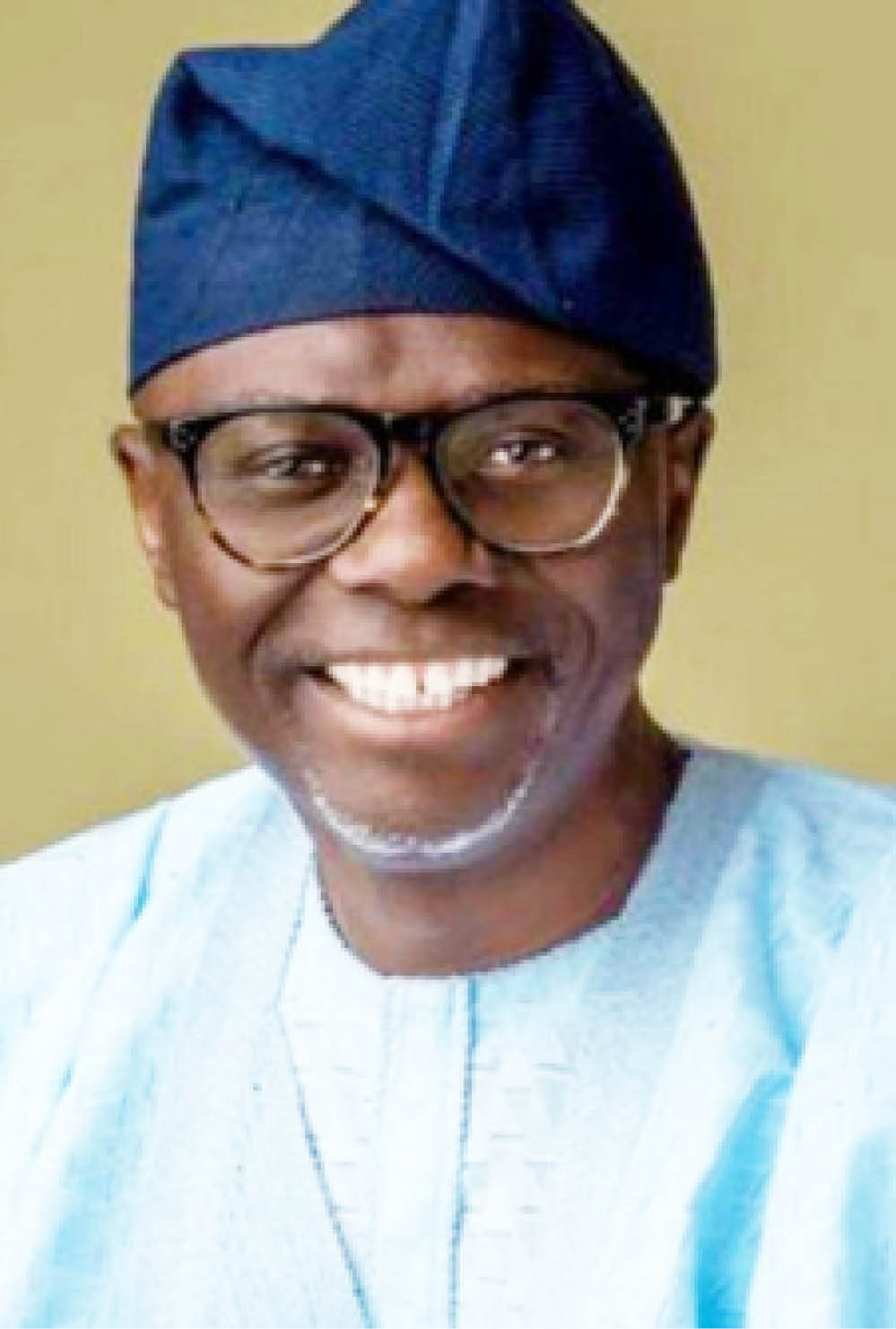This perked me up. On November 6, the governor of Lagos State, Babajide Sanwo-Olu, announced his decision not to be addressed as His/Your Excellency any more. He described the cherished honorific for which many are prepared to kill to be so addressed, as “executive arrogance.”
Some might find this strange. I find it refreshing. I heartily welcome it as a possible national narrative on the demystification of governance and political power in our title-saturated nation.
The governor is only 54 years old. He might not have heard of Aper Aku, the first civilian governor of old Benue State. He was only 14 years old when Aku became governor in 1979. Two months or so after assumed office on October 1, 1979, Aku announced that he chose to be officially addressed as Mr Governor. He told me he was not comfortable with being addressed as excellency because it did not just sit well with his sense of modesty. He wanted his people to see him as one of them. He believed the title was a colonial relic and was no longer appropriate in an executive presidential system. “I have never heard an American president or state governor addressed as “Your Excellency,” he said. True.
I told him he had set off a minor revolution in the demystification of political power in the country. The only problem, I said, was that it was unlikely that the other 18 state governors would follow his example. He smiled and said, “Let that be their problem.”
I was right. None followed his example. He was right. It was their problem. They chose to remain fully clothed in the mystification of governance. Political power derives its power from its crass mystification. Without it, political power is a hollow myth.
It took another 40 years for us to see a state governor who shares the principle of the demystification of power with Aku. Sanwo-Olu, without knowing it, chose to tread Aku’s path of modesty in power in which service to the people matters more, much more, than the titles and the paraphernalia of political office. Sanwo-Olu chose to disrobe himself, as it were, throwing away the covetous robe that makes being a governor so very sweet but so very heady. He did not act on impulse. He acted after giving a long thought to the burden of isolating himself from his people because of a title that makes sense only in our title-loving nation. I will quote him extensively here because every sentence in his reasoning resonates with me.
Listen, then to Sanwo-Olu’s thoughtful and radical argument against what he called “executive arrogance.” In a statement he personally signed and issued to the press, he said: “In the last five months that I have been privileged to exercise the mandate freely given to me by the great and hardworking people of Lagos State, it has come to my consciousness to review certain features of citizen-government relations which impede genuine expression of the democratic spirit of our society and the meaningful exercise of the sovereignty of our people.”
Got that?
He went on: “The office of the governor has been celebrated as the paragon of excellence, a temple of perfection and a throne of purity. This demi-god mystique spreads over the entire machinery of the executive arm of the government, symbolising an authoritarian disposition on the governed. It has deformed the orientation of elected and appointed persons who are paid from the taxes of the people to see themselves as oppressors who can do no wrong and must be served, rather than serve the people.”
And for these and other equally radical reasons, he said, “Thenceforth I wish to be addressed simply as Mr Governor, a title that will constantly remind me that I have been chosen out of so many fellow compatriots to lead a collective salvage of our political economy.”
Awesome.
I wonder if Sanwo-Olu would have better luck than Aku. I wonder if the other 35 state governors would share his take on demystifying political power to lessen the distance between the governor and the governed in a system of government that makes the governor the servant of the people. I know that like Aku before him, none of the other 35 state governors would willingly strip himself of the title regarded as the symbol of political power and stand, as it were, in his political birthday suit. I know that Sanwo-Olu too would walk the lonely road of demystified governance.
In 1999, Babangida Aliyu, governor of Niger State, too did something equally radical. He chose to be addressed simply as the Chief Servant rather than governor. But he too walked the lonely path. No other state governor kept him company. It was not a revolution but a ripple on the placid waters of power in a nation where a man’s worth and importance are defined, not by his service to the people or his country but by this coat of many titles that he believes make him special; a little above man but not as high as the gods.
Here is an irony you may wish to spit out. In addition to ridding our country of corruption, the generals promoted the military administration as a corrective regime. But they too could not afford not to deck themselves out with the one title that matters most in government: excellency. All the military governors cherished being addressed as their excellences. I had expected the military heads of state to recognise the vanity of titles among the bloody civilians and corrected the “executive arrogance” in their men. They did not. Every military head of state was addressed as excellency.
The first notable attempt by the Guardian newspaper at its inception, to make all men equal by calling everyone “Simply Mr” was soon crushed by the formidable legal luminary, the late F.R.A. Williams, who, with his impressive chieftaincy titles could not contemplate being called Simply Mr.
It would be nice if Sanwo-Olu’s action would encourage a national narrative on the demystification of governance. It would be nice if all the governors would disrobe themselves and accept to be addressed as simply Mr. I would be nice if the wives of state governors are not their excellences but simply wives of governors. I know that none of that would happen. We are too far gone in the “executive arrogance” to return to the path of modesty.
Titles are the beads of self-importance won around the necks of men and women of power. The Nigerian constitution does not provide for an executive president or an executive governor. Yet, the president is the executive president and the governors are executive governors/chief executives of their states. In my experience only one man, Lucky Igbinedion, rightly rejected the title of executive governor.
Our senators are distinguished senators; the members of the House of Representatives are right honourable men and women and those in the state houses of assembly as well as local government councillors, are honourable men and women. I suppose the titles reflect the descending order of political importance and the degree of arrogance associated with the exercise of power at the various levels. By the way, the senate president too is addressed as his excellency.
The fault lies with us, the governed. We encourage “executive arrogance” by celebrating our leaders. Thus does a vain man choose to be addressed as Senator, High Chief, Doctor, Alhaji, Hassan Okoronkwo Adeyemi. We so celebrate such a man. I thought the burden of wearing those titles should be the curse visited on him by his vanity and narcissism.

 Join Daily Trust WhatsApp Community For Quick Access To News and Happenings Around You.
Join Daily Trust WhatsApp Community For Quick Access To News and Happenings Around You.

